March 8th marks International Women’s Day, a global celebration of the achievements and contributions of women throughout history. One powerful way to honour and empowering women is through literature. Books have the ability to inspire, educate, and bring about social change. In this article, we will explore the significance of books in celebrating International Women’s Day, highlighting the impact of literature in promoting gender equality and amplifying the voices of women.
The Evolution of International Women's Day:
Before we begin, let’s first find out when International Women’s Day starts. International Women’s Day has its roots in the early 20th century when women across the world began advocating for their rights. The day was officially recognized by the United Nations in 1977, and since then, it has become an annual event celebrated on March 8th.
As we commemorate International Women’s Day, it’s essential to acknowledge the remarkable strides women have made in various fields. This day serves as a tribute to their achievements, and one impactful way to celebrate is through the pages of inspiring books.
Books as Agents of Change:
Recognizing and celebrating the accomplishments of women is not just a one-day affair but a continuous effort to foster equality. Books serve as conduits for these stories, making them accessible to readers worldwide.
Everyone knows the power of literature. Literature has long been a powerful tool for social change, and the same holds true for promoting gender equality. Books have the ability to challenge societal norms, break stereotypes, and inspire readers to think critically about issues related to women’s rights. Authors, both female and male, have played a crucial role in shaping the narrative around gender and empowering women through their words.
Representing Diverse Voices:
One of the strengths of literature is its ability to represent diverse voices and experiences. International Women’s Day is an opportunity to highlight the stories of women from different backgrounds, cultures, and walks of life. Books written by and about women offer readers a window into the varied experiences and challenges that women face globally. By reading these stories, we gain a deeper understanding of the complexities of gender inequality and the importance of intersectionality.
Representing diverse voices in literature is essential to providing a comprehensive and inclusive understanding of women’s experiences. Here are some examples of books that showcase diverse voices:
"The Joy Luck Club" by Amy Tan:

This novel explores the lives of Chinese-American women and their relationships with their immigrant mothers. It delves into the complexities of cultural identity and generational differences.
"Purple Hibiscus" by Chimamanda Ngozi Adichie:
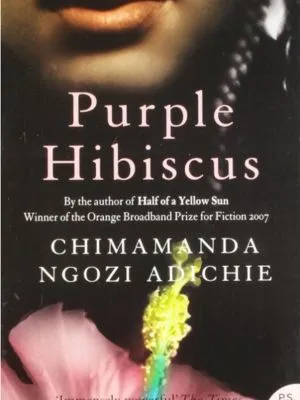
Adichie, known for her focus on African experiences, tells the story of a young Nigerian girl navigating family dynamics, religious extremism, and personal growth.
"Persepolis" by Marjane Satrapi:

A graphic novel that provides a unique perspective on the Iranian Revolution through the eyes of a young girl. It sheds light on the challenges faced by Iranian women during this period.
"The House on Mango Street" by Sandra Cisneros:

Cisneros’ novel is a coming-of-age story that follows a Latina girl growing up in Chicago. It explores themes of identity, gender, and cultural expectations.
"The God of Small Things" by Arundhati Roy:

Roy’s novel is a poignant exploration of the lives of two Indian twins, touching on themes of caste, family, and forbidden love.
Classic and Contemporary Voices:
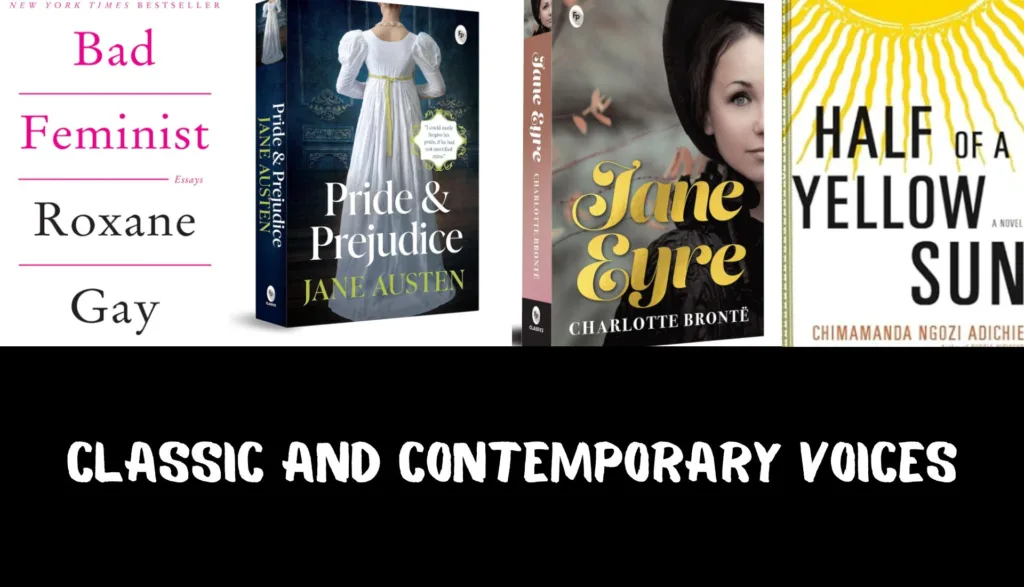
The world of literature is rich with classic and contemporary works that celebrate and explore the lives of women. Classic novels like Jane Austen’s “Pride and Prejudice” and Charlotte Brontë’s “Jane Eyre” have paved the way for discussions on women’s agency and societal expectations. On the contemporary front, authors like Chimamanda Ngozi Adichie with “Half of a Yellow Sun” and Roxane Gay with “Bad Feminist” continue to contribute to the ongoing dialogue on feminism and women’s rights.
Novels for Women's Empowerment:
There is a growing trend of books specifically written to empower women and girls. These books cover a wide range of topics, from self-help and personal development to leadership and entrepreneurship. Titles like “Lean In” by Sheryl Sandberg and “Becoming” by Michelle Obama have become influential works that encourage women to pursue their ambitions, break through barriers, and assert themselves in various aspects of life.
List of Books that Empowering Women
Books that focus on empowerment can serve as a source of inspiration, guidance, and motivation. Here are some examples of books that aim to empower women:
"Lean In: Women, Work, and the Will to Lead" by Sheryl Sandberg:

Sandberg addresses the challenges women face in the workplace and offers advice on how to navigate them, encouraging women to take on leadership roles and assert themselves in their careers.
"Becoming" by Michelle Obama:
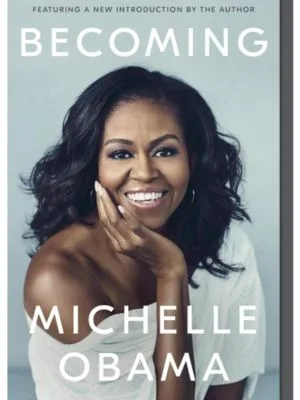
The memoir of the former First Lady reflects on her life, values, and experiences, inspiring readers to embrace their authenticity and pursue their goals.
"Girl, Wash Your Face" by Rachel Hollis:

Hollis shares personal stories and practical advice for women seeking to overcome self-doubt, set goals, and create a life of purpose.
"The 7 Habits of Highly Effective People" by Stephen R. Covey:
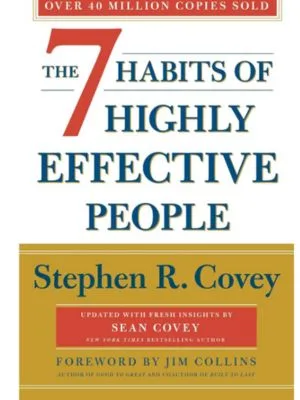
While not specifically focused on women, this classic self-help book provides principles for personal and professional effectiveness, applicable to anyone seeking empowerment.
"Daring Greatly" by Brené Brown:
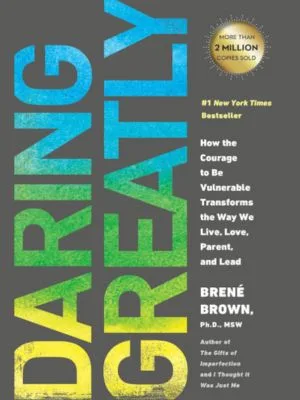
Brown explores the power of vulnerability and encourages readers to embrace their imperfections, fostering a sense of courage and resilience.
The Role of Bookstores and Libraries:
Bookstores and libraries play a crucial role in promoting literature that empowers women. By curating diverse collections and organizing events such as book readings, discussions, and author meet-ups, these spaces contribute to the visibility of women’s voices. International Women’s Day provides an excellent opportunity for bookstores and libraries to showcase works that celebrate women and foster a sense of community around literature.
Educational Initiatives:
In addition to individual readers, educational institutions can play a significant role in using books to promote gender equality. Incorporating literature written by women and about women into school curricula can broaden students’ perspectives and challenge traditional gender roles. Teachers can use books as a starting point for discussions on equality, diversity, and the importance of respecting and appreciating everyone’s contributions.
As we celebrate International Women’s Day 2024, let us recognize the power of books in shaping our understanding of women’s experiences and promoting gender equality. Whether through classic novels, contemporary works, or empowering women literature, books have the ability to inspire change and amplify the voices of women. Let us continue to support and celebrate the authors who contribute to this important conversation, and let literature be a driving force in the ongoing journey towards a more inclusive and equal world.


Pingback: Becoming by Michelle Obama: A Journey of Self-Discovery and Empowerment - bookishwit
Pingback: Empowering Women: A Review of 'Lean In' by Sheryl Sandberg - bookishwit